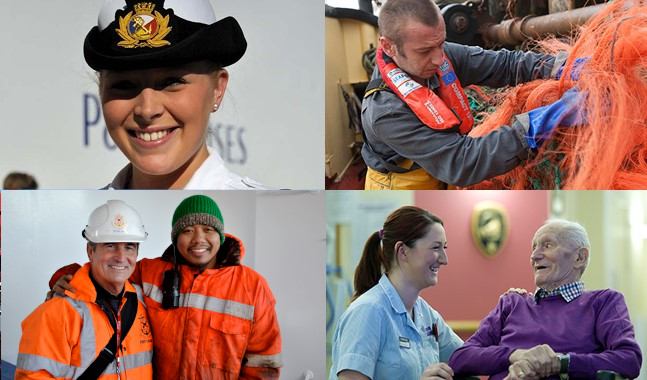
The Maritime Charities Group (MCG) is delighted to announce the appointment of Dr Joanne McVeigh and Alison Kay from Rothesay Consulting to conduct vital new research on the size and demographic profile of the UK seafarer population.
This work will enable the UK’s maritime welfare charities to improve their understanding of the welfare needs of seafarers and their families, and plan service provision for the next decade.
Welcoming their appointment, MCG Chair, Dr Tim Slingsby said: “We’re delighted to be working with Joanne and Alison on this important piece of research. They bring both depth and breadth of experience and knowledge, not only in the field of research but also in the maritime sector. We’re looking forward to getting the project off the ground.”
He continued: “It’s nearly ten years since we last reviewed the seafarer demographics data and so much has changed since then, including the impact of Covid. This new research will bring us up-to-date”.
Between them Dr Joanne McVeigh and Alison Kay have over 30 years’ research experience in maritime and other industries, covering areas such as work psychology, human factors, organisational justice, policy analysis, human rights and social inclusion. Their research is grounded in a ‘systems thinking’ approach that examines the impact of the maritime industry and maritime organisations on the wellbeing of the individual seafarer. This approach will help gain a deeper understanding of what needs to be done to meet the future needs of seafarers and their families.
Reacting to their successful appointment, Dr McVeigh said: “We are passionate about seafarer welfare and are absolutely delighted to be working with the MCG and the wider maritime welfare sector on this vitally important piece of research. We know how important it is to have an accurate picture of the UK seafarer demographics, to understand the needs of seafarers, especially post-Covid, and to examine facilitators and barriers to accessing different types of support. And we know from our experience in the maritime industry and other safety-critical sectors that we need more data from a systems-perspective to effect change.”
She added: “Our seafarers are not only “assets” in the maritime industry but human beings with families and loved ones at home. We firmly believe that seafarers should be valued and treated well and look forward to working with MCG member charities and other UK maritime organisations to undertake this important study.”
The next stage in the process will be in-depth consultation by the research team with MCG member charities about the key issues to focus on and potential sources of data.
Dr Slingsby added: “Our members know what the issues are, so consulting with them at the very start of the research process is a vital first step. We’ll make sure that this connection continues throughout the life of the project and look forward to sharing the findings towards the end of the year.”
The Merchant Navy Welfare Board (MNWB), the umbrella charity for the UK Merchant Navy and fishing fleets, is one of eight charities that makes up the membership of the MCG which shares and commissions research, supports the education and welfare of seafarers and their families and promotes best practice within the maritime charity sector.
